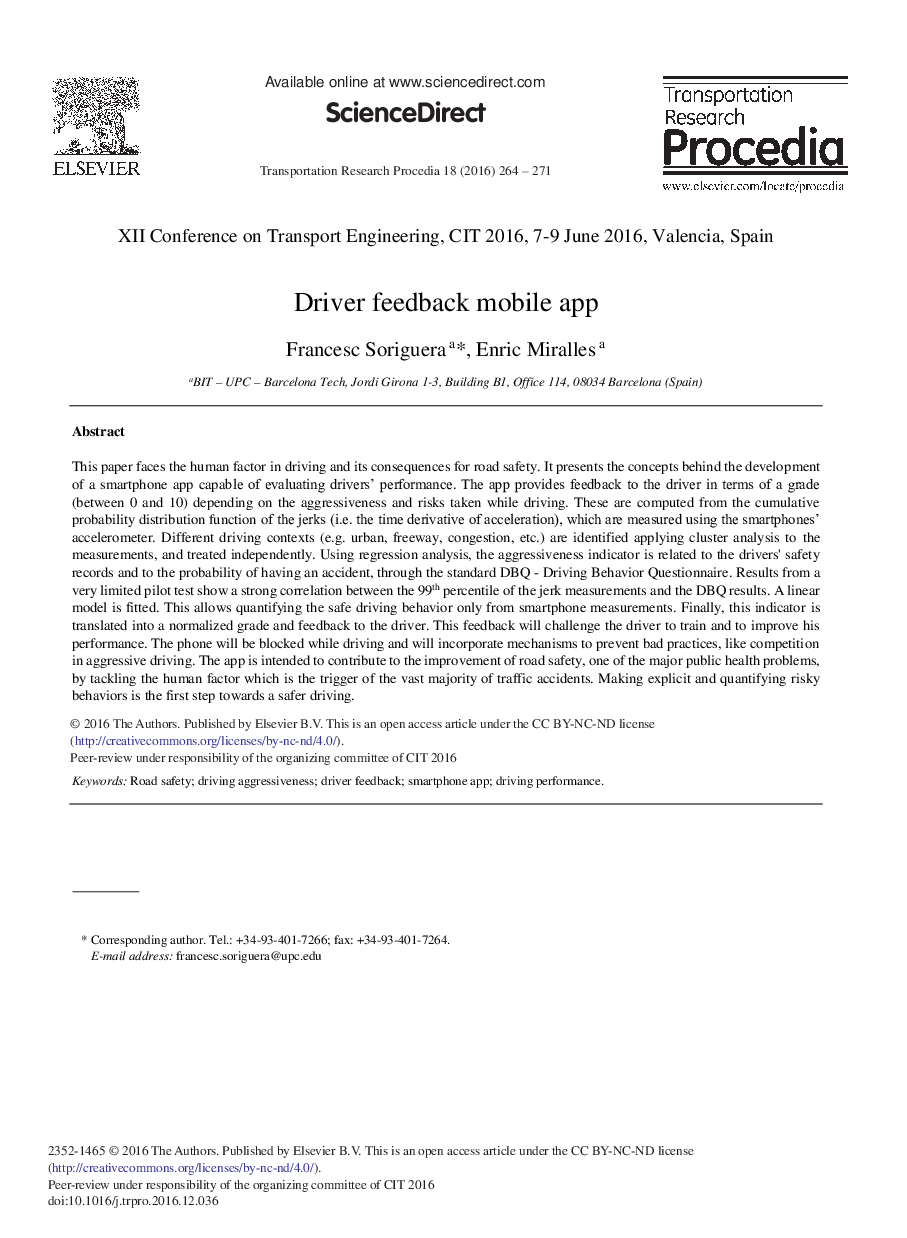| Article ID | Journal | Published Year | Pages | File Type |
|---|---|---|---|---|
| 5125666 | Transportation Research Procedia | 2016 | 8 Pages |
This paper faces the human factor in driving and its consequences for road safety. It presents the concepts behind the development of a smartphone app capable of evaluating drivers' performance. The app provides feedback to the driver in terms of a grade (between 0 and 10) depending on the aggressiveness and risks taken while driving. These are computed from the cumulative probability distribution function of the jerks (i.e. the time derivative of acceleration), which are measured using the smartphones' accelerometer. Different driving contexts (e.g. urban, freeway, congestion, etc.) are identified applying cluster analysis to the measurements, and treated independently. Using regression analysis, the aggressiveness indicator is related to the drivers' safety records and to the probability of having an accident, through the standard DBQ - Driving Behavior Questionnaire. Results from a very limited pilot test show a strong correlation between the 99th percentile of the jerk measurements and the DBQ results. A linear model is fitted. This allows quantifying the safe driving behavior only from smartphone measurements. Finally, this indicator is translated into a normalized grade and feedback to the driver. This feedback will challenge the driver to train and to improve his performance. The phone will be blocked while driving and will incorporate mechanisms to prevent bad practices, like competition in aggressive driving. The app is intended to contribute to the improvement of road safety, one of the major public health problems, by tackling the human factor which is the trigger of the vast majority of traffic accidents. Making explicit and quantifying risky behaviors is the first step towards a safer driving.
